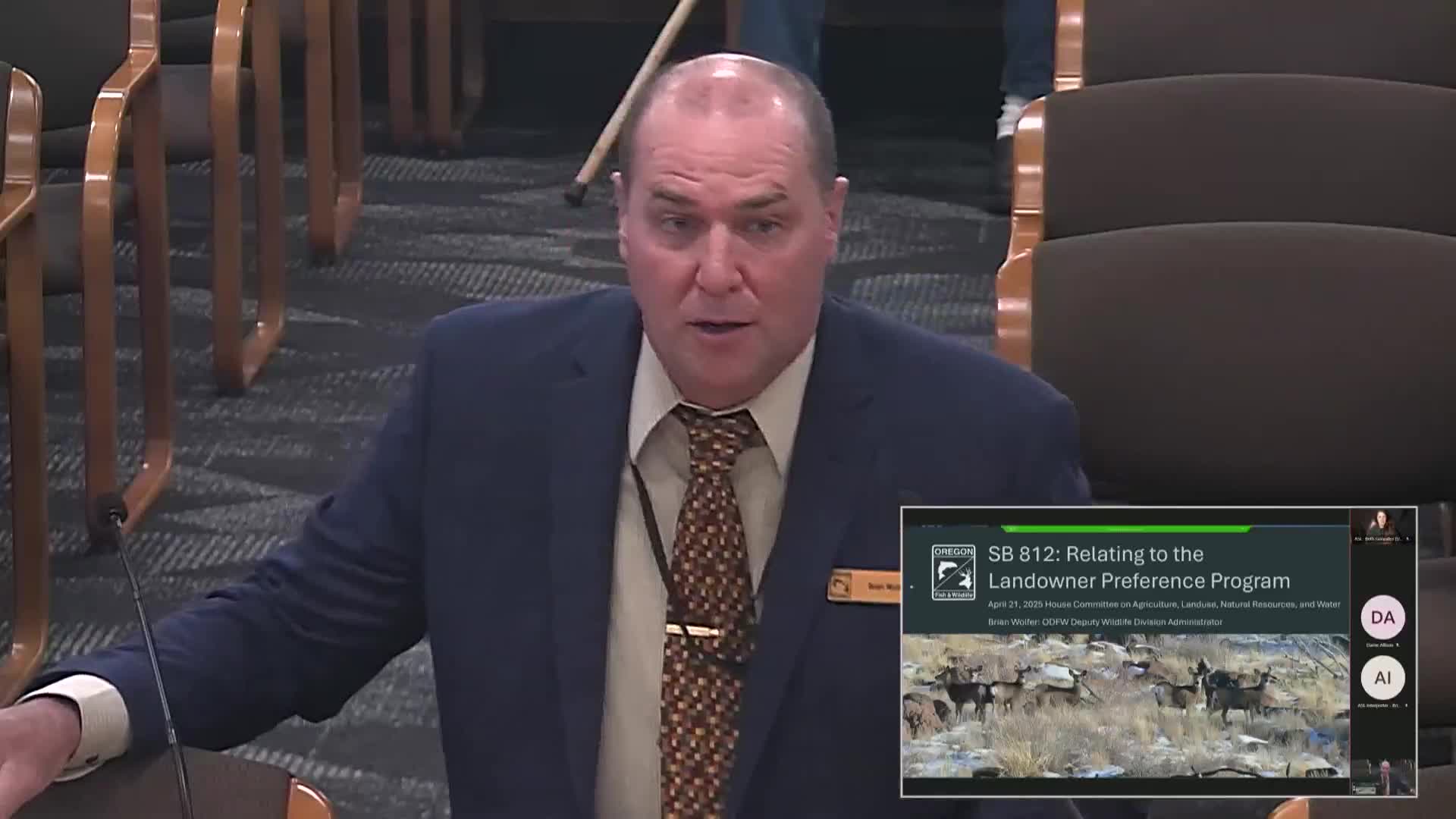Hearing held to make landowner preference hunting program permanent

Summary
The committee heard testimony supporting Senate Bill 812, which would remove the sunset for Oregon’s Landowner Preference (LOP) program and make it permanent. The Department of Fish and Wildlife and multiple conservation, agricultural and industry groups testified in favor, citing stewardship incentives and program stability.
The House Committee on Agriculture, Land Use, Natural Resources, and Water held a public hearing on Senate Bill 812, which would repeal the program sunset and make Oregon’s Landowner Preference (LOP) hunting program permanent.
Brian Wolfer, wildlife division deputy administrator for the Oregon Department of Fish and Wildlife (ODFW), told the committee the LOP program helps private landowners who provide habitat to have access to controlled hunt tags for deer, elk and pronghorn and said the program balances landowner and public hunting interests. Wolfer described program mechanics: acreage thresholds (in Western Oregon a minimum of 40 acres for deer and elk hunts; in Eastern Oregon 40 acres for antlerless deer and elk hunts and 60 acres for buck/bull hunts and pronghorn), limits on pronghorn tags to landowners and immediate family, and a transfer limit of up to 50% of available buck and bull tags to non‑family hunters where allowed.
Wolfer said landowners enroll electronically through ODFW’s licensing system, pay a registration fee (he said he believed it to be $30), identify qualifying taxlots and list hunters who would receive tags for limited hunts prior to the May 15 deadline used for the June 20 drawing. For antlerless and non‑limited hunts, Wolfer said landowners may enroll and identify hunters up until the day before a hunt begins.
Wolfer acknowledged that some landowners charge hunters for access to their property and that ODFW cannot fully quantify how often that occurs; he told the committee that 35–45% of LOP antler transfers go to non‑family members in recent seasons.
Public witnesses who testified in support included David Wiley, lead volunteer for the Rocky Mountain Elk Foundation; Kyle Smith, director of government relations for The Nature Conservancy in Oregon; Michael Lias of the Oregon Forest Industries Council; Lauren Kenzie of the Oregon Farm Bureau; and other stakeholders. Testimony from The Nature Conservancy and other landowners described donation programs, local stewardship benefits and community uses of donated tags.
Supporters urged the committee to pass SB 812 so that the program — in place, with varying modifications, since the early 1980s and last significantly changed in statute in 2013 — would no longer require periodic legislative extension. There was no recorded opposition in the hearing record.
The committee did not take a final vote in the recorded hearing; members asked clarifying questions about enrollment timelines, documentation and program mechanics. The hearing record shows ODFW staff and stakeholders agreed the program has matured and stakeholders recommended removing the sunset clause.

